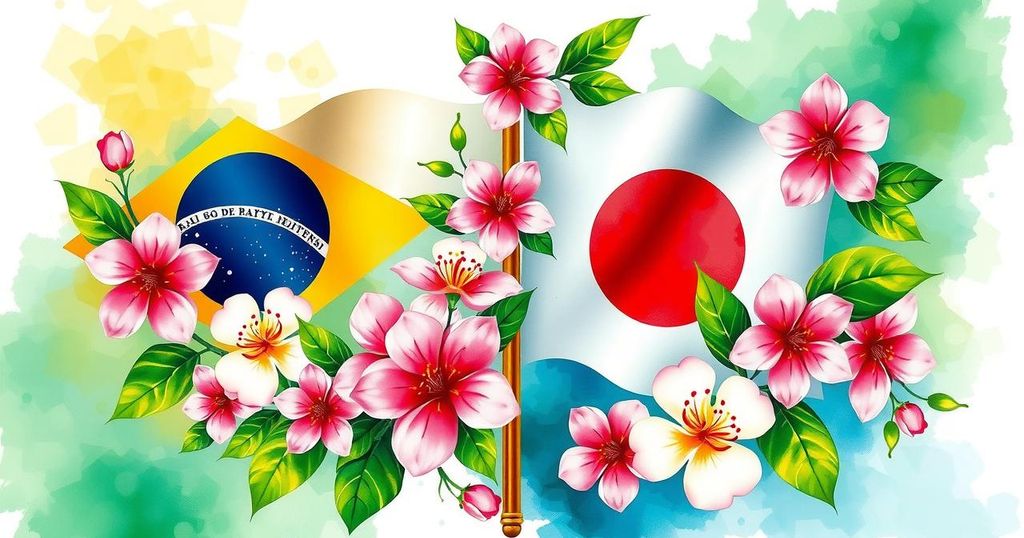Politics
ASIA, BILATERAL TRADE, BRAZIL, CARIBBEAN, CHINA, DONALD TRUMP, ECONOMIC COOPERATION, GEOPOLITICS, INDONESIA, JAPAN, LATIN AMERICA, LULA, MARCO RUBIO, MEXICO, NORTH AMERICA, SHIGERU ISHIBA, SINGAPORE, SOUTH AMERICA, TRADE, TRADE RELATIONS, U. N, U. N. SECURITY COUNCIL, U. S, UNITED STATES, VIETNAM
Nia Simpson
Brazil’s Strategic Shift: Strengthening Ties with Asia Under Lula
Brazilian President Lula da Silva is enhancing Brazil’s diplomatic engagement with Asia through significant trade agreements and partnerships, highlighted by his state visit to Japan. Lula aims to boost trade with Japan from $11 billion to $17 billion, marking Brazil’s shift towards nonalignment amid U.S. policy uncertainties. His administration will host the U.N. climate conference while addressing domestic political challenges.
Brazilian President Luiz Inácio Lula da Silva is intensifying his nation’s diplomatic engagement with Asia, positioning Brazil amid the uncertainties of changing U.S. foreign policy. His recent state visit to Japan marked a historic moment, being the first such visit by a world leader since 2019, highlighting Brazil’s pivot toward expanding diplomatic and economic relations with Asia.
During his visit, Lula emphasized economic growth, aiming to increase trade between Brazil and Japan from $11 billion to $17 billion. Both nations signed ten bilateral agreements and agreed to biannual leader summits. Lula expressed his intention to facilitate a trade deal between Japan and Mercosur while also addressing the potential for exporting Brazilian beef to Japan after a mission to explore trade options.
As Brazil navigates the complexities of international trade, Lula’s administration advocates for a policy of active nonalignment, effectively strengthening ties with various Asian countries including Vietnam, Singapore, and Indonesia. This strategic pivot serves as a safeguard against potential U.S. tariff impositions, while Brazil remains attentive to enhancing economic relations on multiple fronts.
Additionally, Lula’s administration is set to host the upcoming U.N. climate conference, reinforcing Brazil’s position on climate leadership alongside Japan. The two nations recently committed to collaborate on climate-related projects despite challenges posed by shifting political commitments in the U.S.
Within Brazil, political tensions persist as Lula’s predecessor faces scrutiny from the judiciary. However, Lula’s engagements abroad underscore Brazil’s efforts to strengthen democratic values in foreign policy while navigating domestic challenges.
In conclusion, President Lula’s diplomatic outreach to Japan and other Asian countries marks a significant strategic shift for Brazil amidst an evolving global landscape. His administration’s commitment to diversifying trade partnerships and fostering climate cooperation illustrates a strong resolve to assert Brazil’s role in international diplomacy and trade amid uncertainties stemming from U.S. policies. Through active nonalignment, Brazil seeks resilience and multilateral collaboration in a competitive global environment.
Original Source: foreignpolicy.com








Post Comment